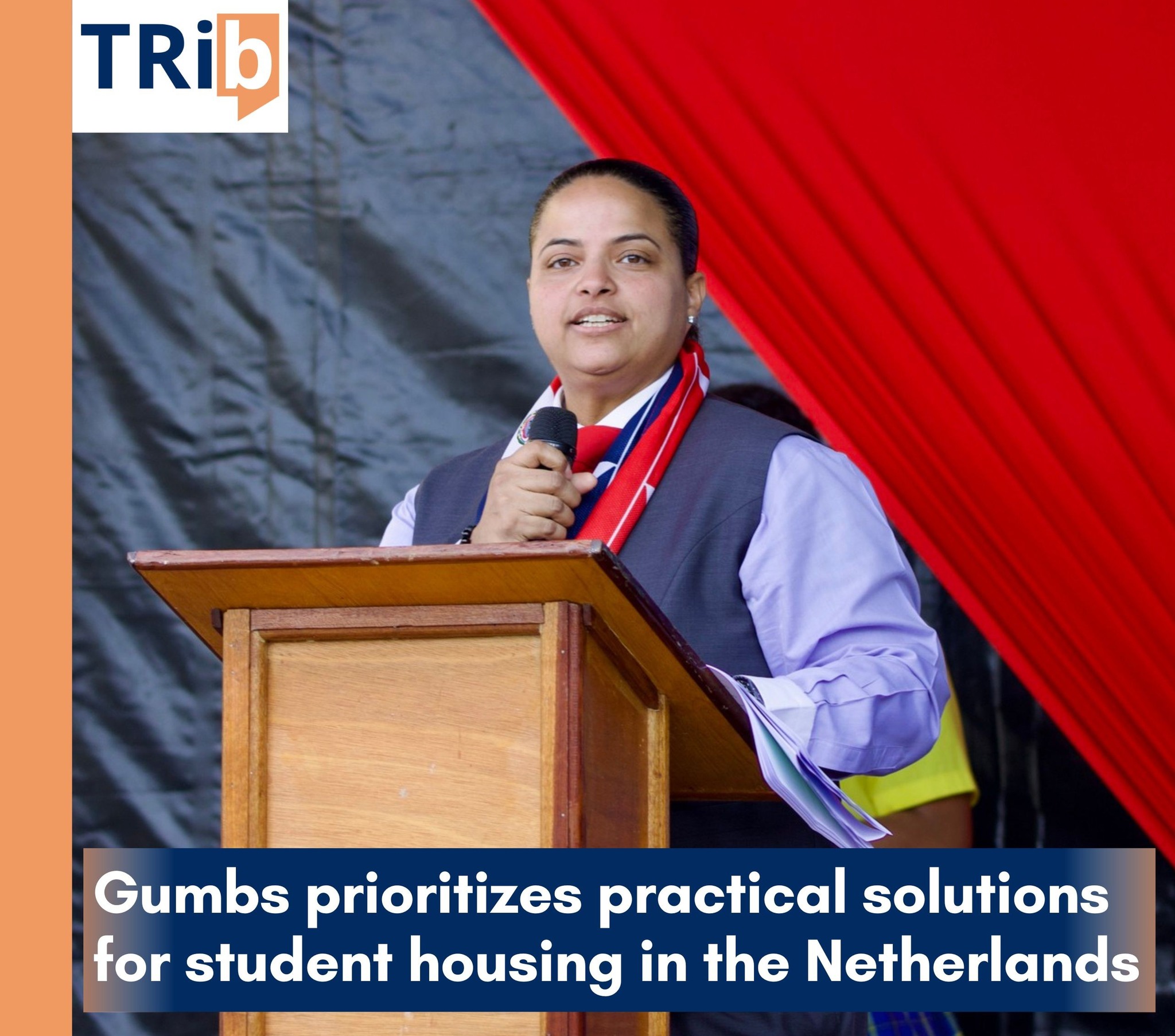GREAT BAY--Minister of Education, Culture, Youth and Sport (ECYS), Melissa Gumbs, has responded once again to concerns over the availability of affordable and stable student housing for St. Maarten students in the Netherlands.
In recent weeks, Minister Gumbs noted that several members of the community have suggested the possibility of the government or entities such as the General Pension Fund APS acquiring a building in the Netherlands specifically for student housing. While she acknowledged that this is a potential long-term solution, she emphasized the need to explore more feasible and immediate options first.
“Quite a few people have reached out and said maybe the country should buy a building, or maybe we should have APS buy one,” said Minister Gumbs. “Those are all potential options. But right now, my focus is on exploring room allotments with housing corporations before we take such a significant step. Everybody knows that we have limited financial resources, and I have to explore whether buying a building is the best way forward for the ministry and for St. Maarten as a whole.”
Minister Gumbs highlighted the numerous logistical, legal, and financial considerations involved in such a venture: “It’s not just buying a building and then students can rent it out. You have to set policy, how long can a student rent it? To me, it would be for the first year only, or even six months, to keep a rotating number of residents in the development. Who’s going to manage it? Who’s going to maintain it? Can APS afford to invest across the Atlantic, and is that even allowed as a pension fund?”
These practical considerations are why the Ministry is prioritizing direct engagement with housing corporations in the Netherlands. “My focus remains on speaking to housing corporations to see what is possible in terms of a room allotment,” Gumbs stated. “This is something I’ve personally advocated for since 2012 and members of USC have as well. Aruba and Curaçao have had housing allotments in the past and still do, but even they are now facing challenges with the housing corporations.”
She explained that the housing crisis in the Netherlands is not limited to international students, but affects students, young professionals, and others alike. Minister Gumbs pointed to the proliferation of short-term rental platforms like Airbnb as a contributing factor to the disappearance of long-term housing options.
“Before I left the Netherlands, I saw firsthand how Airbnb and other short-term rental entities were impacting the housing market. People were putting their apartments up strictly for vacation rental income. While I don’t begrudge anyone trying to earn, this has a long-term effect, removing housing from the residential cycle. Cities like Amsterdam and Paris have implemented laws to restrict this, such as limiting how many properties can be listed as short-term rentals,” she noted.
“The quick cash grab is attractive, but every apartment listed on Airbnb is one fewer option for local residents. It’s something we’ll likely need to consider legislating in the future here on St. Maarten as well.”
Looking ahead, Minister Gumbs will travel to the Netherlands at the end of July to continue discussions on student housing with her counterparts and various housing corporations. She also acknowledged the efforts of Minister Plenipotentiary Gracita Arrindell, who has been engaged in dialogue with Dutch and regional stakeholders, and confirmed that St. Maarten will look at possibly coordinating with Aruba and Curaçao to develop a joint approach.
She also noted the changing geographic trends in student placement. “In the past, most of our students went to Den Haag, Amsterdam and Rotterdam. But I’ve seen more students opting for cities like Eindhoven, Enschede and Nijmegen."
As such the provision of housing through property purchase is no longer geographically advantageous and confined and would require significant resources.
Join Our Community Today
Subscribe to our mailing list to be the first to receive
breaking news, updates, and more.






